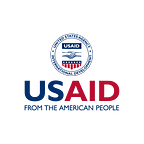Helping Communities Rise Again in Mali
By Ryan Larrance, Senior Disaster Operations Specialist with USAID’s Office of U.S. Foreign Disaster Assistance
The project name means “Rise Again” in the local language — and for thousands of Malians who have endured years of conflict, it’s the path back to a stable, productive life.
Since conflict broke out in northern Mali in 2012, thousands of families have been driven from their homes and have been unable to earn a living. Many who were farmers lost their crops and livestock. To help, USAID partnered with Mercy Corps to launch the Irtoun project, providing the helping hand families needed to get back on their feet and support themselves.
Earlier this year, I visited Mali as part of my role as a senior disaster operations specialist with USAID to meet with the partners implementing our programs and liaise with members of the humanitarian community who are helping Malians once again become self-sufficient. During my visit, I learned how these communities have remained resilient in the face of so much hardship and are using USAID’s support to start a new, more prosperous chapter in their lives. Let me provide three examples of progress.
Hawa Almaimoune is a 34-year-old mother of four children. She sells food and cooking supplies in the market in Ansongo, a town of about 33,000 people in northeastern Mali. When the conflict overwhelmed her town, she and her husband struggled to provide for their family. Business dried up as many people left town or were too afraid to venture to the market — but even as conflict threatened her livelihood, Hawa used Irtoun’s business classes and cash grants to expand her market stand, sell a wider array of products and eventually double her income.
For the past decade, Mariam Attacher has sold dried and fried fish — her specialty — in Ouatagouna, a small town on the Niger River. Her business struggled amid the conflict, but the entrepreneurship and market analysis training she received also helped her realize she should diversify her products. The Mercy Corps project helped her experiment with selling new lines of products, like shoes and skin ointments. The new products provide a stable source of income — a big comfort for the 35-year-old single mother of three.
Sheep were always Kassoum Toure’s passion, a rarity in a region where most men raise cattle. He specializes in a breed called Bali Bali, but livestock is still a risky business in northern Mali: Water and animal feed can be scarce during the annual lean season, and the conflict weakened markets and shuttered many government-operated veterinary services. The Irtoun project helped the 23-year-old build a solid business plan to buy malnourished sheep, nurse them back to health, and sell them for a profit. He’s now earning a steady income, allowing him to support his elderly mother.
These are just three stories, but thousands are benefiting across the entire region. Much remains to be done to help many communities return to the sense of normalcy they had before the conflict, but I’m proud of the work USAID and Mercy Corps are doing to help them along the way.
Who can’t relate to Hawa, Mariam and Kassoum’s motivation? Three people, among thousands, rebuilding their businesses in order to care for their families after their lives were upended by conflict. Now, with support from Irtoun, they can hold their heads up with pride again and take control of their destiny.
Check out more on USAID’s Office of U.S. Foreign Disaster Assistance’s work in Mali. Follow USAID/OFDA on Facebook and Twitter.
